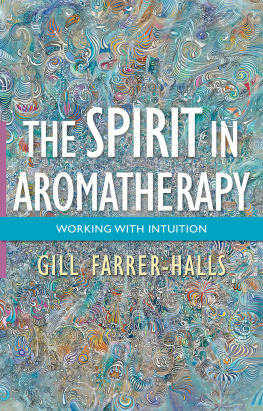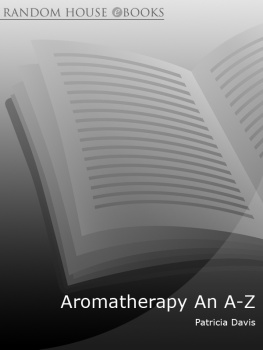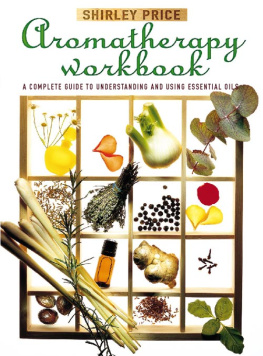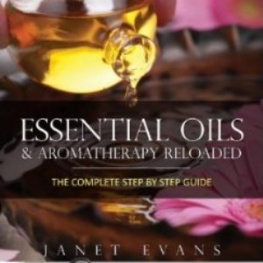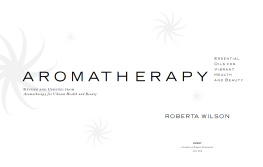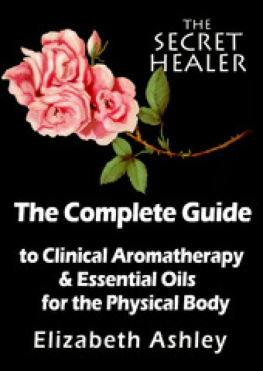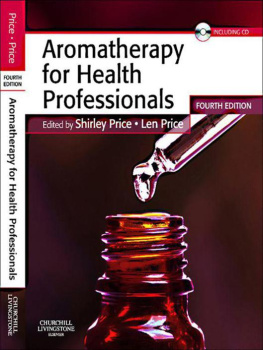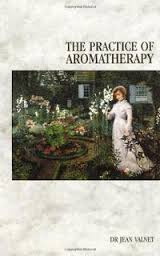Also available
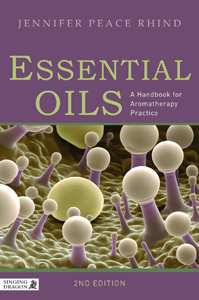
Essential Oils
A Handbook for Aromatherapy Practice
2nd edition
Jennifer Peace Rhind
ISBN 978 1 84819 089 4
eISBN 978 0 85701 072 8
Revised and significantly expanded, the new edition of this handbook provides full information on the use of essential oils in the field of contemporary aromatherapy, based on the research evidence behind their therapeutic applications.
The author provides the historical and cultural context for our understanding of aromatherapy, with an overview of its relationships with Greek, Chinese and Ayurvedic medicine. She gives a detailed account of how essential oils are created, how and where aromatherapy is used, the underlying pharmacology, and the current research. The characteristics of over 100 essential oils, absolutes and resinoids are provided in detail, including botanical and chemical information, usage and combinations.
This will be an indispensable text for all students and practitioners of aromatherapy and related disciplines, as well as anyone interested in the use of essential oils for health and well-being.
THE SPIRIT IN AROMATHERAPY
of related interest
Essential Oils
A Handbook for Aromatherapy Practice
2nd edition
Jennifer Peace Rhind
ISBN 978 1 84819 089 4
eISBN 978 0 85701 072 8
Fragrance and Wellbeing
Plant Aromatics and Their Influence on the Psyche
Jennifer Peace Rhind
ISBN 978 1 84819 090 0
eISBN 978 0 85701 073 5
Listening to Scent
An Olfactory Journey with Aromatic Plants and their Extracts
Jennifer Peace Rhind
ISBN 978 1 84819 125 9
eISBN 978 0 85701 171 8
A Sensory Journey
Meditations on Scent for Wellbeing
Jennifer Peace Rhind
Card Set
ISBN 978 1 84819 153 2
eISBN 978 0 85701 175 6
Mudras of India
A Comprehensive Guide to the Hand Gestures of Yoga and Indian Dance
Cain Carroll and Revital Carroll
Foreword by Dr David Frawley
ISBN 978 1 84819 109 9
eISBN 978 0 85701 067 4
THE SPIRIT IN
AROMATHERAPY
Working with Intuition
GILL FARRER-HALLS

LONDON AND PHILADELPHIA
First published in 2014
by Singing Dragon
an imprint of Jessica Kingsley Publishers
73 Collier Street
London N1 9BE, UK
and
400 Market Street, Suite 400
Philadelphia, PA 19106, USA
www.singingdragon.com
Copyright Gill Farrer-Halls 2014
Front cover image source: John F. B. Miles (www.tibetanart.com)
All rights reserved. No part of this publication may be reproduced in any material form (including photocopying or storing it in any medium by electronic means and whether or not transiently or incidentally to some other use of this publication) without the written permission of the copyright owner except in accordance with the provisions of the Copyright, Designs and Patents Act 1988 or under the terms of a licence issued by the Copyright Licensing Agency Ltd, Saffron House, 610 Kirby Street, London EC1N 8TS. Applications for the copyright owners written permission to reproduce any part of this publication should be addressed to the publisher.
Warning: The doing of an unauthorised act in relation to a copyright work may result in both a civil claim for damages and criminal prosecution.
Library of Congress Cataloging in Publication Data
Farrer-Halls, Gill, author.
The spirit in aromatherapy : working with intuition / Gill Farrer-Halls.
pages cm
Includes bibliographical references and index.
ISBN 978-1-84819-209-6 (alk. paper)
1. Aromatherapy. I. Title.
RM666.A68F37 2014
615.3219--dc23
2014004228
British Library Cataloguing in Publication Data
A CIP catalogue record for this book is available from the British Library
ISBN 978 1 84819 209 6
eISBN 978 0 85701 159 6
CONTENTS
ACKNOWLEDGEMENTS
I offer my heartfelt thanks to the many people who have enriched my understanding and practice of aromatherapy. Along the way I learned something of value from you all: at the beginning of the journey from my fellow students and teachers, then friends, colleagues and clients and my own students. I continue to read and study books, both old and new, which helps remind me that there is always more to learn about the art of aromatherapy. I also respectfully thank my spiritual teachers, whose kindness and wisdom is immeasurable.
Particular thanks are due to my dear friend and fellow aromatherapist, Ueli Morgenthaler, for his original suggestions about fragrant language, which inspired me to develop my own ideas into a coherent thesis for this book. And finally I offer my deep gratitude to Robert Beer for supplying the cover image from the collection of John F. B. Miless work, and for his unwavering support and love during the writing of this book.
Introduction
A great deal has already been written about aromatherapy, and between all of the many books, the basic principles of our subject are comprehensively covered. In addition, the professional practitioner has already studied, trained and qualified and, through working with clients, has subsequently gained a great deal of invaluable hands-on experience of all aspects of aromatherapy. The question arises of whether, as professional aromatherapist or keen amateur, we really need another book on aromatherapy at all. The publication in 2013 (by Singing Dragon, also the publisher of this title) of the recently updated version of Jennifer Peace Rhinds Essential Oils: A Handbook for Aromatherapy Practice is a triumph. This excellent book is comprehensive, thorough and reflects years, even decades, of research; it will be hard to surpass.
However, what follows is not another formal textbook outlining some of the different aspects of aromatherapy. Instead I have tried to write something more personal and unusual, maybe from some perspectives even a little quirky. This book explores the intuitive approach to aromatherapy. Although intuition and meditation are not unfamiliar concepts to many aromatherapists, and have been written about to some extent in other aromatherapy titles, this book provides an in-depth discussion of how we can develop and then use intuition to benefit our clients and ourselves. It will, it is hoped, prove useful to the experienced professional because it seeks to go far beyond the basic skills taught on training courses and what has already been written about in many of the aromatherapy books available. And I suggest there is always more we can learn about the art of aromatherapy.
We all have individual strengths and specialist areas within our subject; my own lie in learning through play, experimentation and, above all, meditation and intuition. I consider myself fortunate that my teacher was Patricia Davis at the London School of Aromatherapy, and my class was the last one that she taught. Her approach resonated with me as we shared an interest in Buddhism and meditation, which influenced the teaching style and content of the course. Such a spiritual approach emphasised the principles of holism and synergy and particularly encouraged deep inner reflection and developing intuition around both the essential oils and each clients individual needs. As someone who has maintained a daily practice for nearly thirty years and done many retreats, meditation is integral to my whole life. Thus my understanding, philosophy and practice of aromatherapy are deeply informed by my experience of meditation and Buddhism.
Inevitably the qualities of calm, focus and intuitive insight brought about by meditating regularly over a long period of time have influenced my personal practice of aromatherapy. This inner awareness or as a wonderful Tibetan Buddhist teacher called Lama Yeshe described it, inner wisdom strengthens and reinforces intuition. Intuition in aromatherapy may be regarded as lacking credibility from some perspectives and is perhaps sometimes dismissed as superficial, uneducated or even simply wacky. However, when intuition arises in someone who has trained and thoroughly learned the outer theory of aromatherapy, then I would argue that this inner sense complements such knowledge. Or, as Lama Yeshe used to frequently say, Trust your inner wisdom dear.
Next page
